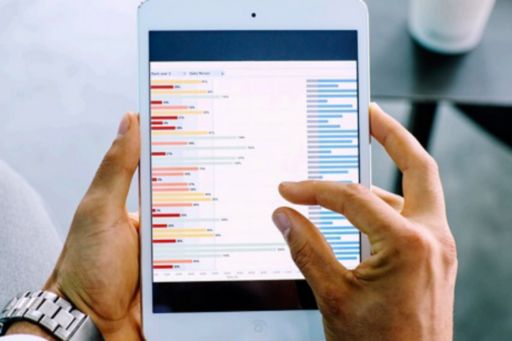Drilling Down - Navigating the LIBOR transition (part 2)
Drilling Down - Navigating the LIBOR transition (part 2
In the previous issue of Drilling Down, KPMG’s Brian O’Neal and Eamonn Maguire described the challenges oil and gas corporations can expect in the coming transition from LIBOR to alternative reference rates. Here, they discuss how firms can prepare to navigate the process.
How prepared are corporations for the expected transition from LIBOR?
Many corporations with significant exposures still have a tremendous undertaking before them. Conversations with a number of clients indicate many companies are in the early stages of preparation, but they are markedly behind the financial institutions in their banking groups.
This is not to say companies are ignoring the issue. Many have made significant headway in identifying exposure areas outside the Treasury function’s traditional debt issuance and rates management activities, such as intercompany lending, embedded financing in customer offerings, escalation or penalty clauses in sales and procurement contracts, and franchise contracts. However, moving from “identifying” to “analyzing” and “updating” remains a future-state activity for most firms.
What are the key challenges corporations will face during the transition?
Major energy corporations with complex organization structures and significant, complicated exposures face market-related issues and a host of practical challenges, such as:
- Multiple potential scenarios: Uncertainty in the face of planning and execution, requiring corporations to deploy robust analytics that build dynamic, event-based scenarios to prepare for multiple potential scenarios
- Mass documentation overhauls: Large-scale changes in legal documentation and models, introducing significant operational risk and time to completion if not handled in an effective manner
- Coordinated enterprise response: Organizational challenges related to developing a corporation-wide, consistent, and coherent response to both bank contract negotiations and nonbank contract discovery and remediation
- Adjustments to models and systems: Whose inputs, controls, and assumptions will need to be changed and tested in preparation for SOFR, and potentially a dual environment until the final decay of LIBOR
- Accounting changes: Potential changes to accounting standards and their impact on hedge effectiveness tests and other hedge accounting requirements.
What should corporations be doing now?
The process to fully transition from LIBOR to the RFRs will span several years and consume significant resources. Firms that begin early will secure crucial advantages in making this transition both effective and efficient.
Once corporations determine how the transition could affect them, they should be better positioned to understand the magnitude and complexity of the task ahead, develop an effective roadmap, and assemble resources to plan and execute on an enterprise level.
At KPMG we recommend an initial focus on four areas:
- Establishing an enterprise-wide governance structure to oversee communications, program management, and planning across the business lines and supporting functions. Nominate a senior executive sponsor for key subgroups, define internal communication plans, and determine a project scope that includes business, products, and systems enterprise-wide.
- Building a comprehensive inventory of exposures to identify LIBOR-dependent instances and processes. This task includes identifying all LIBOR-referenced debt instruments and derivatives, and nondebt and nonderivative contract instances, developing robust fallback-specific amendments, and developing a LIBOR processes dependency map.
- Assessing the impact and developing a risk profile for all identified exposures, prioritized by complexity and risk levels. The assessment should cover key functions such as Treasury, Operations, Procurement, Contracts and Legal, Risk and Valuations, Sales, Compliance, Finance, and Accounting.
- Building a phased roadmap based on the economic impacts to existing business and creating an inventory of systems, infrastructure, and functions requiring changes. Firms should create scenario-based action plans capable of adapting as the RFR framework becomes clearer; develop and coordinate enterprise-wide responses to protocols for contract repapering, negotiating bank fallback provisions with banks, and similar key issues; and develop a process to onboard and implement new rates and contracts.
How can KPMG be helpful in the process?
KPMG has a long history of helping clients think through complex transitions and executing against strategic plans. We are currently working with our clients to identify exposures outside their banking relationships and developing plans to tackle the LIBOR transition at the enterprise level. For example, we can help with:
- Computer-assisted identification and processing of LIBOR terms and their dependencies in corporate contracts, leveraging natural language processing, artificial intelligence, and other automation tools
- Assessments for organizational readiness, financial impact, system needs, and governance updates
- Model development, model validation, and model remediation
- Strategic planning and PMO activity
- Data migration, parallel testing, and system change readiness.
What is the first suggestion you make to your clients?
We advocate completing a holistic LIBOR assessment as soon as possible, with attention paid both to standard exposures (debt instruments and derivatives) and non-standard exposures (other contract references, process impacts, and technology impacts). Companies should then take a programmatic approach to addressing and mitigating LIBOR transition risks.
Finally, we recommend companies consider advances in natural language processing, analytics, and contract technologies as a means to streamline their efforts and provide new insights into their rate-based business activities.

About the Global Energy Institute
The KPMG Global Energy Institute (GEI) is a worldwide knowledge- sharing forum on current and emerging industry issues. Launched in 2007, the GEI interacts with its over 30,000 members through multiple media channels, including audio and video Webcasts, publications and white papers, podcasts, events, and quarterly newsletters.
© 2024 KPMG LLP, a Delaware limited liability partnership and a member firm of the KPMG global organization of independent member firms affiliated with KPMG International Limited, a private English company limited by guarantee. All rights reserved.
For more detail about the structure of the KPMG global organization please visit https://kpmg.com/governance.